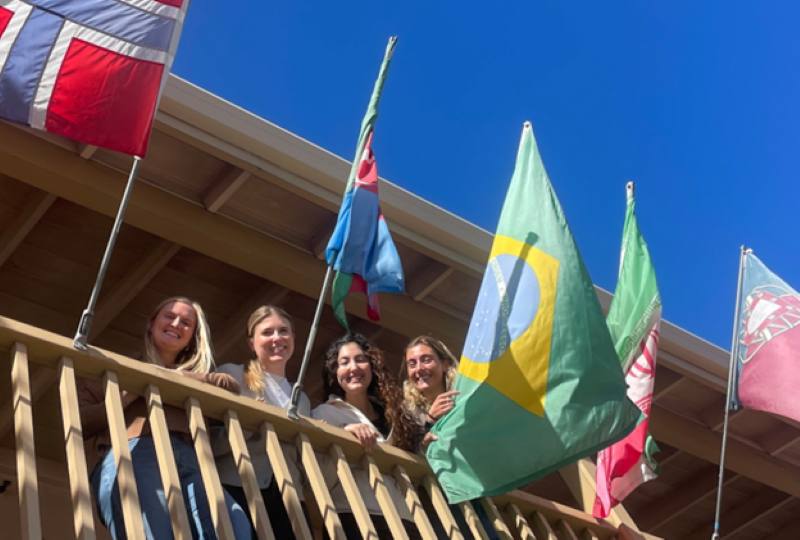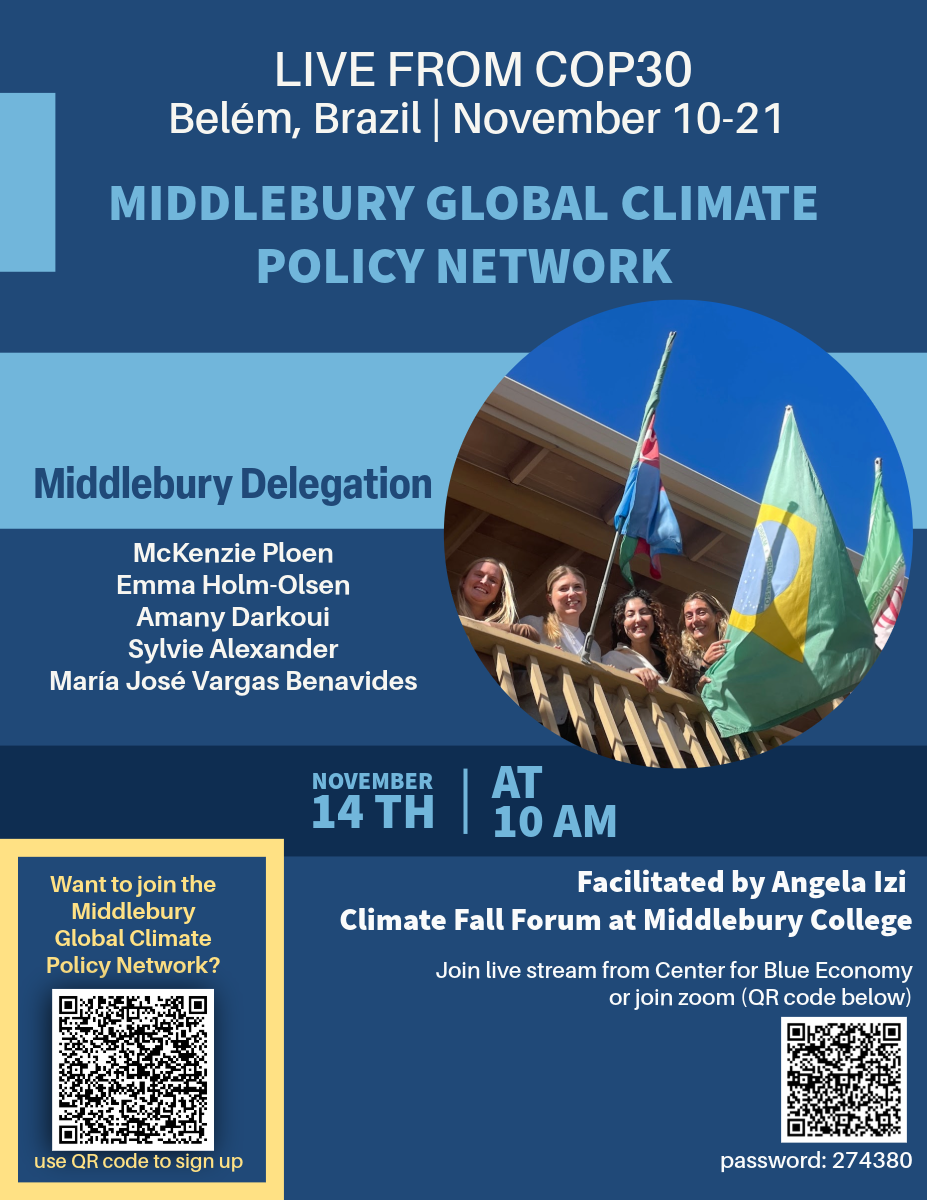10,000 Futures: Modeling Climate Risk in Monterey
The Center for the Blue Economy has developed pilot software modeling 10,000 possible futures over 80 years to help the City of Monterey adapt to sea level rise.

They are joining world leaders, scientists, policymakers, industry representatives and delegates from around the globe who will be gathering in the Amazon city of Belém at the 30th United Nations (UN) Conference of the Parties, or COP30. What is the goal of COP? To negotiate national responses to climate change on a global level. COP30, the 30th conference, aims to accelerate the implementation with a focus on finance pledges and equitable engagement. This is the first time the COP has been held in Brazil.
In all, 5 representatives from Middlebury will travel to Belém, including 4 current graduate students and one recent alumnus. Each has prepared with intention. As representatives of the Middlebury observer delegation at COP30, they will lead panel discussions around climate finance and the role of higher education in climate policy. They will also be volunteering for the Ocean Pavilion and the youth and indigenous delegations. Travel to COP30 for the delegation is generously supported by Middlebury’s Ron and Jessica Liebowitz Fund for Innovation, Kathryn Wasserman Davis Collaborative in Conflict Transformation, and the Center for Blue Economy.
Importantly, the delegation will also be updating the broader Middlebury Global Climate Policy Network with live sessions, posts, and answering questions from the network. This professional network of students, staff, faculty and alumni across Middlebury College, Schools, and the Institute has been an incredible opportunity to connect a community with shared interests. The network was initiated in 2025 with generous support from Middlebury’s Ron and Jessica Liebowitz Fund for Innovation.

Description: COP30 is underway. It is the 30th year. Is it working? In this session, we will explore questions around what climate leadership looks like on the international stage. We will hear from current Middlebury Institute students who are at COP30 on what they are experiencing. Are you interested in ways you can become more engaged? Join this conversation and learn about the recent launch of the Middlebury Global Climate Policy Network.
Facilitated by: Angela Izi
Join via zoom
This session is part of the Fall Forum:
What Works Now? Middlebury Fall Climate Forum
November 14-16, 2025 (event schedule)
Breakout: Leadership Past, Present, and Future: International Agreements and Policy
The COP Network brings together Middlebury College and MIIS students, alumni, faculty, and staff who share a common interest in international climate policy. The primary goal of this network is to facilitate knowledge exchange and foster deeper understanding of global climate negotiations through direct engagement with the United Nations Climate Change Conference (COP).
The network aims to demystify the COP process by creating an experiential learning opportunity for participants, and sharing their knowledge with the broader network community. A key component of this initiative is to support the participation of at least two students and one alum to attend COP30 through the Middlebury observer delegation status. These participants will gain firsthand insight into the complexities and dynamics of international climate negotiations. The network also organizes virtual events before and after COP to share knowledge, insights, and ideas.
To join the group, any Middlebury student„ alumni, faculty, or staff from the College, Institute or any of the Schools can sign up though this short survey. The group is coordinated through periodic emails to share events and a Linked-In group to share ideas, opportunities, and make professional connections.
The Center for the Blue Economy has developed pilot software modeling 10,000 possible futures over 80 years to help the City of Monterey adapt to sea level rise.
| by Rachel Christopherson; Wikipedia; World Bank
The People’s Republic of Bangladesh is a country whose maritime territory is roughly equal to the size of its land area.
| by Eva Gudbergsdottir
Perhaps the greatest life lesson recent graduate Elea Becker Lowe MAIEP ’18 can share is one she herself has heeded: when presented with an opportunity, go for it.
| by Jason Warburg
The Institute’s Center for the Blue Economy is bringing leaders in ocean and coastal policy to Monterey for public talks weekly through December.
Dr. Charles Colgan, Director of Research at the Center for the Blue Economy, authored two chapters in the newly published Blue Economy Handbook of the Indian Ocean Region.
| by Charles Colgan, Shaun Richards, and Rachel Christopherson
The Center for the Blue Economy is committed to providing free, open-access data. Now regional managers along the Mid-Atlantic coast have a new tool: the Mid-Atlantic Coastal Vulnerability Data Portal.
| by Rachel Christopherson and Co-Authors California's Fourth Climate Change Assessment
California is a global leader in using, investing in, and advancing research to set proactive climate change policy, and its Climate Change Assessments provide the scientific foundation for understanding climate-related vulnerability. Dr. Charles Colgan, Director of Research at the Center for the Blue Economy, is a co-lead author of: “California’s Coast and Ocean Summary Report.”